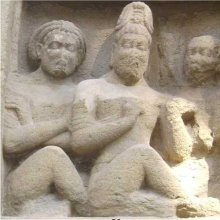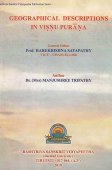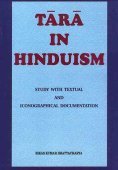Vyasa, Vyāsa, Vyasha: 37 definitions
Introduction:
Vyasa means something in Buddhism, Pali, Hinduism, Sanskrit, Jainism, Prakrit, the history of ancient India, Marathi, Hindi. If you want to know the exact meaning, history, etymology or English translation of this term then check out the descriptions on this page. Add your comment or reference to a book if you want to contribute to this summary article.
Vyasa has 37 English definitions available.
Images (photo gallery)
Languages of India and abroad
Sanskrit dictionary
[Deutsch Wörterbuch]
Source: Cologne Digital Sanskrit Dictionaries: Böhtlingk and Roth Grosses Petersburger WörterbuchVyāśā (व्याशा):—(2. vi + 1. āśā) f. Zwischengegend (auf der Windrose) [WEBER, Rāmatāpanīya Upaniṣad 325.]
--- OR ---
Vyāsa (व्यास):—(von 2. as mit vi) m.
1) das Auseinanderziehen, ein Fehler der Aussprache [Prātiśākhya zum Ṛgveda 14, 2. 4.] —
2) Ausführlichkeit, ausführliche Darstellung (Gegens. samāsa) [Amarakoṣa 3, 3, 22.] [Trikāṇḍaśeṣa 3, 3, 451.] [Hemacandra’s Abhidhānacintāmaṇi 1432.] [Anekārthasaṃgraha 2, 591.] [Medinīkoṣa s. 11.] [Halāyudha 4, 81. 5, 19.] [Mahābhārata 1, 51. 85. 3, 67.] vyāsena ausführlich [Suśruta 2, 17, 3. 513, 6.] [PAÑCAR. 2, 3, 46.] vyāsāt dass. [Suśruta 1, 261, 3.] vyāsatas dass. [112, 13. 2, 332, 9.] vyāsasamāsatas [Mahābhārata 12, 1296.] samāsavyāsayogatas [Bhāgavatapurāṇa 1, 9, 27.] —
3) Durchmesser [Algebra 87.] Breite [Varāhamihira’s Bṛhajjātaka S. 53, 12. 17. 28. fgg.] = mānabheda [Śabdaratnāvalī im Śabdakalpadruma] —
4) der auseinandergezogene Text, Bez. des Padapāṭha [Prātiśākha zum Atharvaveda 3, 68. 72.] —
5) Nomen proprium eines mythischen Weisen, dem die Redaction und auch Abfassung einer Menge umfangreicher Texte (der Veda, des Mahābhārata, der Purāṇa, des Vedānta u. s. w.) zugeschrieben werden; er gilt für einen Sohn Parāśara’s von der Satyavatī (vgl. dvaipāyana, kṛṣṇadvaipāyana). [Trikāṇḍaśeṣa 2, 7, 15. 3, 3, 451.] [Hemacandra’s Abhidhānacintāmaṇi 847.] [Hemacandra’s Anekārthasaṃgraha] [Medinīkoṣa] [Halāyudha 2, 258.] [Taittirīyāraṇyaka 1, 9, 2.] [Weber’s Indische Studien 4, 377.] [Bhagavadgītā 10, 13.] munīnāmapyahaṃ vyāsaḥ (sagt Kṛṣṇa) [13, 37. 18, 75.] [Mahābhārata 1, 21. 2047.] vivyāsa vidānyasmātsa tasmādvyāsa iti smṛtaḥ [2417.] [Harivaṃśa 2. 4. 5. 453. 7999. 10692.] matsītanūja [Spr. (II) 1110.] [Oxforder Handschriften 47,b,21. fgg. 59,a,35.] [Bhāgavatapurāṇa.1,6,1.] [BURNOUF,] [?Intr. 568. Sânkhya Philosophy 22. HALL 9. 86. Verfasser eines Gesetzbuchs Yājñavalkya’s Gesetzbuch.1,5. Weber’s Indische Studien.1,20. 232. fgg. 467. Bibliothecae sanskritae 455.] achtundzwanzig Vyāsa [Viṣṇupurāṇa 272.] [Oxforder Handschriften 52,a. fgg. 80,a.] Astronom [Weber’s Indische Studien 2,247.] skānda [3, 280.] mātar = satyavatī [Trikāṇḍaśeṣa 2, 8, 11.] sū desgl. [3, 3, 222.] —
6) als v.l. für vyāma [Varāhamihira’s Bṛhajjātaka S. 77, 7] vielleicht fehlerhaft für vyādha oder vyāpya Costus speciosus oder arabicus. — Vgl. dinavyāsadala, bābajī, bṛhadvyāsa, veda, vaiyāsa fgg.
--- OR ---
Vyāsa (व्यास):—Trennung [SARVADARŚANAS. 140, 22.]
Sanskrit, also spelled संस्कृतम् (saṃskṛtam), is an ancient language of India commonly seen as the grandmother of the Indo-European language family (even English!). Closely allied with Prakrit and Pali, Sanskrit is more exhaustive in both grammar and terms and has the most extensive collection of literature in the world, greatly surpassing its sister-languages Greek and Latin.
See also (Relevant definitions)
Partial matches: Asha, Vy, Aca.
Starts with (+129): Vyasa acarya, Vyasa bhatta, Vyasa mokshaditya, Vyasa Shiksha, Vyasa shri ramadeva, Vyasa vitthala, Vyasabhashyavyakhya, Vyasacala, Vyasacaritra, Vyasacarya, Vyasadala, Vyasadarshanaprakara, Vyasadasa, Vyasadatti, Vyasadeva, Vyasadevamishra, Vyasadhvaja, Vyasadipancasiddhanta, Vyasadipika, Vyasadritaramgini.
Ends with (+7): Aharvyasa, Ardhavyasa, Atmaramavyasa, Babajivyasa, Babujivyasa, Brihadvyasa, Ganapativyasa, Gopalavyasa, Harivyasa, Havyakavyasha, Havyasa, Janardana vyasa, Kavirajavyasa, Koniyavyasa, Laghuvyasa, Nalavyasa, Navyasa, Prithivyasa, Sadanandavyasa, Samvyasa.
Full-text (+1072): Krishnadvaipayana, Dvaipayana, Dashanandini, Vyasasmriti, Jaimini, Vyasatva, Vyasashukasamvada, Vyasapujapaddhati, Vyasapujavidhi, Vyasasamasin, Kanina, Citrangadasu, Vyasasutrasamgati, Vyasasutrabhashya, Vyasasamasatas, Vyasasutrashamkarabhashya, Vyasasutracandrika, Vyasasutravritti, Vyasavana, Vyasasutravyakhya.
Relevant text
Search found 154 books and stories containing Vyasa, Vyāsa, Vyasha, Vyāśā, Vy-asha, Vy-āśā, Vy-asa, Vy-āsa; (plurals include: Vyasas, Vyāsas, Vyashas, Vyāśās, ashas, āśās, asas, āsas). You can also click to the full overview containing English textual excerpts. Below are direct links for the most relevant articles:
Garga Samhita (English) (by Danavir Goswami)
Verse 6.15.36 < [Chapter 15 - The Glories of Nṛga-kūpa and Gopī-bhūmi]
Verse 1.1.1 < [Chapter 1 - Description of Śrī-Kṛṣṇa’s Glories]
Verse 5.15.32 < [Chapter 15 - Seeing Sri Radha]
The Vishnu Purana (by Horace Hayman Wilson)
Chapter III - Division of the Veda into four portion, by the Vyasa, in every Dwapara age < [Book III]
The Third Book < [Preface]
Chapter IV - Division of the Veda, in the last Dvapara age by the Vyasa Krishna Dvaipayana < [Book III]
Shrimad Bhagavad-gita (by Narayana Gosvami)
Verse 10.37 < [Chapter 10 - Vibhūti-yoga (appreciating the opulences of the Supreme Lord)]
Verses 10.12-13 < [Chapter 10 - Vibhūti-yoga (appreciating the opulences of the Supreme Lord)]
Verse 18.75 < [Chapter 18 - Mokṣa-yoga (the Yoga of Liberation)]
The Devi Bhagavata Purana (by Swami Vijñanananda)
Chapter 3 - On praising the Purāṇas and on each Vyāsa of every Dvāpara Yuga < [Book 1]
Chapter 4 - On the defeat of the Devas by Vṛtra < [Book 6]
Chapter 10 - On the story of Satyavrata < [Book 7]
Taittiriya Upanishad Bhashya Vartika (by R. Balasubramanian)
Satirical works of Kshemendra (study) (by Arpana Devi)
8. Reverence for Vyāsa and Vālmīki < [Chapter 2 - Kṣemendra: His Life and Works]
6. Vyāsadāsa–his other name < [Chapter 2 - Kṣemendra: His Life and Works]
Related products
(+2 more products available)







